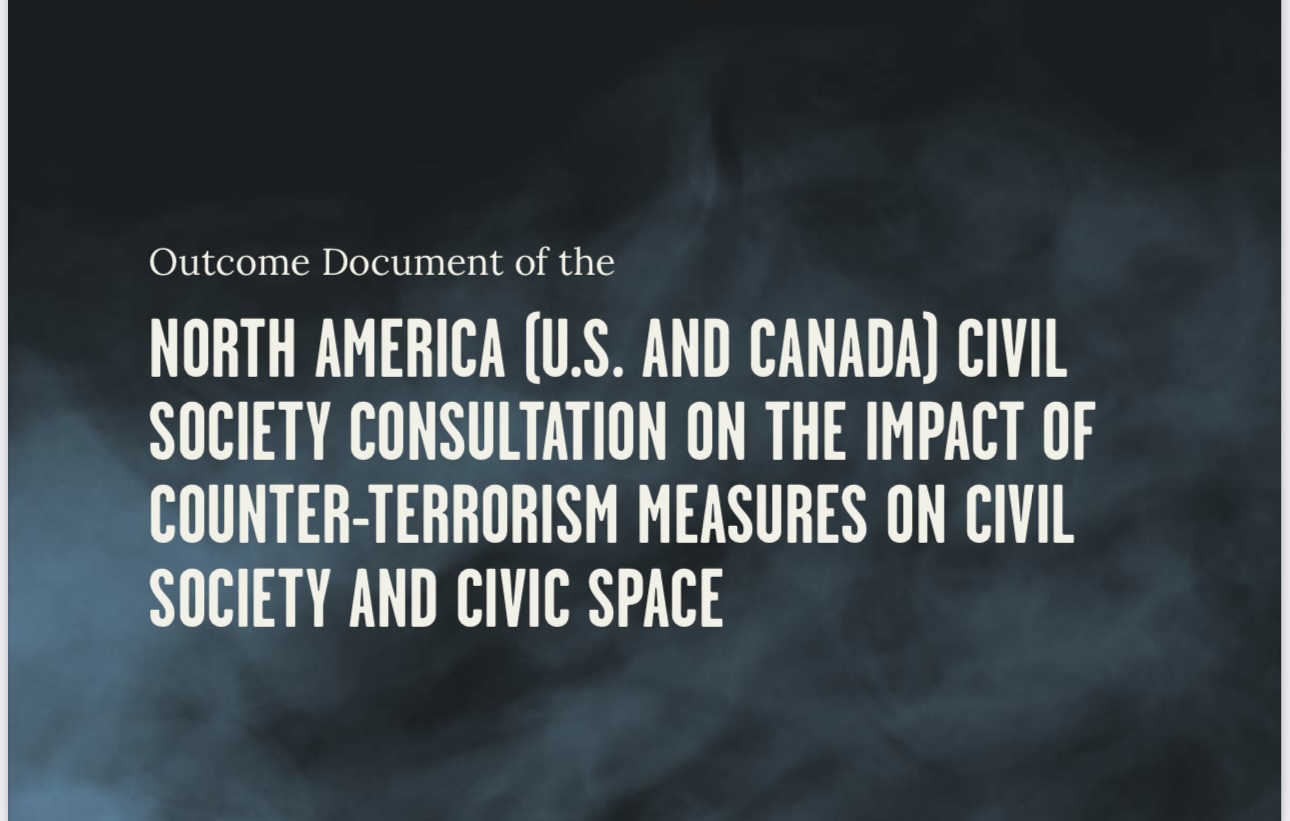The Canadian Muslim Public Affairs Council (CMPAC) proudly participated in the North America (U.S. and Canada) Civil Society Consultation on the Impact of Counter-Terrorism Measures on Civil Society and Civic Space. Co-convened by the Charity & Security Network, this consultation brought together several key civil society organizations, including CMPAC, to discuss the implications of counter-terrorism (CT) and preventing/countering violent extremism (P/CVE) measures on vulnerable groups.
The recently released outcome document encapsulates the essence of the consultation, revealing a troubling pattern of discriminatory implementation disproportionately affecting ethnic, religious, and racial minorities, with a particular focus on Muslim communities.
CMPAC actively engaged in discussions, highlighting concerns about the discriminatory nature of CT & P/CVE measures and their chilling effects on vulnerable communities. CMPAC emphasized the importance of addressing institutional Islamophobia, advocating for transparency, and urging Member States to eliminate P/CVE programs lacking evidence and history targeting minority communities.
Key Findings: The outcome document outlines three core findings, shedding light on the systemic discrimination embedded in CT & P/CVE measures and the disproportionate impact on marginalized groups, perpetuation of harmful stereotypes through discriminatory implementation, and the absence of due process in CT intelligence operations.
Recommendations: The document provides comprehensive recommendations to Member States, the United Nations, and private sector stakeholders. Suggestions include addressing institutional Islamophobia, prohibiting discriminatory profiling, ensuring accountability for biased intelligence programs, and establishing mechanisms to document the historical misuse of counter-terrorism measures.
This publication reflects CMPAC’s unwavering commitment to advocating for a just and inclusive society, free from the adverse impacts of discriminatory counter-terrorism measures. Explore the outcome document, available here, for an in-depth understanding of the issues and the path forward.
